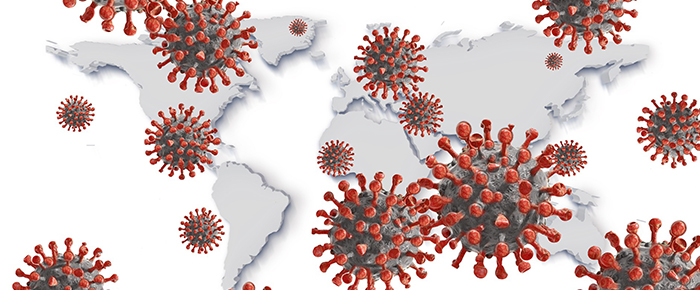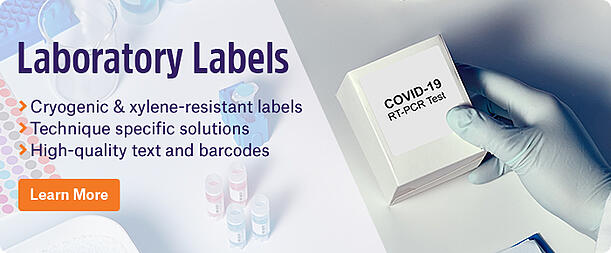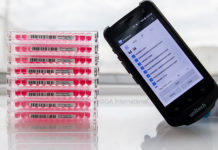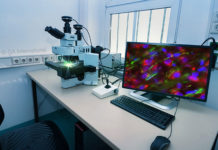 Don’t forget to favorite this blog as it will be continuously updated with the latest news regarding COVID-19 immunity.
Don’t forget to favorite this blog as it will be continuously updated with the latest news regarding COVID-19 immunity.
Five months after the COVID-19 outbreak in China, the virus has infected more than two and a half million people worldwide and submitted over 100 countries to either a full or partial lockdown. The economy is suffering, and many countries are taking cautious steps to reopen for business.
When thinking about a post-lockdown scenario, the main question regarding COVID-19 immunity is: can people get reinfected by SARS-CoV-2?
Reinfection or relapse?
Chinese authorities reported four patients tested positive five to thirteen days after being discharged from the hospital. They were initially released because they presented no clinical symptoms, no radiological abnormalities, and two negative RT-PCR test results.1
On April 17th, the Korean Centers for Disease Control and Prevention reported 163 (2.1% of 7,829) patients testing positive again after being discharged from isolation.2
For the coronaviruses that cause the typical cold, reinfection is common, but for these COVID-19 cases, the most probable explanation is the occurrence of false negative results. A small proportion of discharged patients might still carry the virus in an amount not detectable by the currently available commercial tests.
A study, not yet peer-reviewed, seems to confirm this hypothesis. In this study, 38 of the 262 participating patients with COVID-19 tested positive again after being discharged from Shenzhen Hospital in China. When testing for false-negative events, the authors found that hyper-sensitive methods could detect 50% more RNA-positive cases compared to commercial tests.3
Other possible explanations could be an inadequate sample collection (in certain circumstances, the throat might not be the best organ for detecting the virus), a poor execution of the test, or improper storage of the sample, causing RNA degradation.
A more frightening hypothesis is that the virus can persist in some organs and flare-up a second time. Until now, no evidence exists to confirm such a phenomenon.
Can we become immune to SARS-CoV-2?
COVID-19 is a very new disease, and we haven’t yet had enough time to determine if and for how long it takes those who recover from the illness to develop immunity. However, we can find some valuable clues from preliminary studies and data available on SARS and MERS—both coronaviruses that closely resemble SARS-CoV-2.
An animal study that’s yet to be peer-reviewed showed that SARS-CoV-2 could not reinfect rhesus macaques after one month following initial infection, though how long that protective immunity will last is not known.4 There are no recorded cases of reinfection for SARS and MERS, but immunity for both viruses has a limited duration. Previous studies on SARS suggest that protection may last two years5,6, whereas studies on MERS showed a correlation of immune strength with disease severity.7
A similar response might occur in patients with SARS-CoV-2. An unpublished analysis of 175 patients that have already recovered from COVID-19 with mild symptoms reported variable levels of neutralizing antibodies (those that stop the virus replication). About 30% of patients developed low titers of these antibodies, and almost 6% had undetectable titers.8 Therefore, mild illness might not always build up protection, which is especially relevant considering that 80% of the infected patients present mild to moderate symptoms.
Why is it critical to understand COVID-19 immunity?
Ultimately, we need to know who can reenter society without getting reinfected or serving as a viral carrier.
Many companies have raced to produce antibody tests, which detect if a person has been in contact with the virus. However, because of how fast these kits were released, most haven’t undergone rigorous quality control to check their reliability. It appears that most of the available tests are either not sensitive enough (they cannot accurately identify people that had the disease) or specific enough (they cannot determine who wasn’t infected). Both parameters should score above 99%, but a recent analysis indicates that commercial antibody tests possess a sensitivity below 93% and a specificity ranging from 80% to 100%.9
Furthermore, the presence of antibodies against SARS-CoV-2 doesn’t rule out the possibility that a person might still be infectious. A study found a slow decline of viral RNA after the detection of antibodies in the blood. The presence of viral RNA could mean that the person is still shedding infectious viral particles.10
Predicting herd immunity is essential
Herd immunity occurs when a population is sufficiently immune to a disease, limiting the spread of the infection. Importantly, herd immunity is not a tool that can be used during a pandemic because it implies the death of many people and the hospitalization of even more.
Remember, not every SARS-CoV-2 infection might contribute to long-lasting immunity. Without a vaccine right now and because of the possibility that COVID-19 could resurface like a seasonal flu, it is crucial to calculate the extent of herd immunity.
It is necessary to rule out the possibility of immune enhancement
Immune enhancement is a paradoxical phenomenon. After being in contact with a virus, or its vaccine, some people develop a more severe disease if reinfected. Similarly, immunity to another coronavirus can exacerbate the infection rather than prevent it. Notably, this phenomenon can occur for dengue fever, respiratory syncytial virus (RSV), and SARS, and must be verified for SARS-CoV-2.11
Understanding COVID-19 immunity and immune enhancement is critical for vaccine development
As of April 20th, the landscape of COVID-19 vaccines comprises five candidates in clinical evaluation (one in phase II and four in phase I) and seventy-one under pre-clinical assessment. The global effort to create a vaccine against COVID-19 is unique in terms of scale and speed. Some vaccines could be available for emergency use as early as 2021.12 In such a fast-paced atmosphere, understanding how the virus interacts with our immune system will help produce crucial insights for the development of safer and more effective vaccines.
UPDATE (May 5th, 2020):
A spokesman for the South Korean government, Dr. Oh Myoung-don, a professor of medicine and the head of Seoul National University Hospital’s division of infectious diseases, has said that tests showing positive results for patients who recovered from COVID-19 were not due to reinfection or reactivation of the virus. He notes that it’s likely due to the presence of inactive viral fragments still circulating in the patients that rendered positive results.
LabTAG by GA International is a leading manufacturer of high-performance specialty labels and a supplier of identification solutions used in research and medical labs as well as healthcare institutions.
References:
- Lan L, Xu D, Ye G, et al. Positive RT-PCR Test Results in Patients Recovered From COVID-19. 2020, 323:1502–1503.
- Updates on COVID-19 in Republic of Korea, April 17th 2020, KCDC.
- An J, Liao X, Xiao T, et al. Clinical characteristics of the recovered COVID-19 patients with re-detectable positive RNA test. 2020.03.26.20044222.
- Bao L, Deng W, Gao H, et al. Reinfection could not occur in SARS-CoV-2 infected rhesus macaques. 2020.03.13.990226.
- Wu LP, Wang NC, Chang YH, et al. Duration of antibody responses after severe acute respiratory syndrome. Emerging infectious diseases. 2007, 13:1562-1564.
- Mo H, Zeng G, Ren X, et al. Longitudinal profile of antibodies against SARS‐coronavirus in SARS patients and their clinical significance. Respirology. 2006, 11: 49-53.
- Alshukairi AN, Khalid I, Ahmed WA, et al. Antibody Response and Disease Severity in Healthcare Worker MERS Survivors. Emerging Infectious Diseases. 2016, 22:1113-1115.
- Wu F, Wang A, Liu M, et al. Neutralizing antibody responses to SARS-CoV-2 in a COVID-19 recovered patient cohort and their implications. medRxiv03.30.20047365.
- Mallapaty S. Will antibody tests for the coronavirus really change everything? Nature. [Epub ahead of print]
- Wölfel R, Corman VM, Guggemos W, et al. Virological assessment of hospitalized patients with COVID-2019. Nature. 2020. [Epub ahead of print]
- Peeples L. News Feature: Avoiding pitfalls in the pursuit of a COVID-19 vaccine. Proceedings of the National Academy of Sciences. 2020, 117:8218-822.
- Thanh Le T, Andreadakis Z, Kumar A, et al. The COVID-19 vaccine development landscape. Nature reviews Drug discovery. 2020.[Epub ahead of print]




